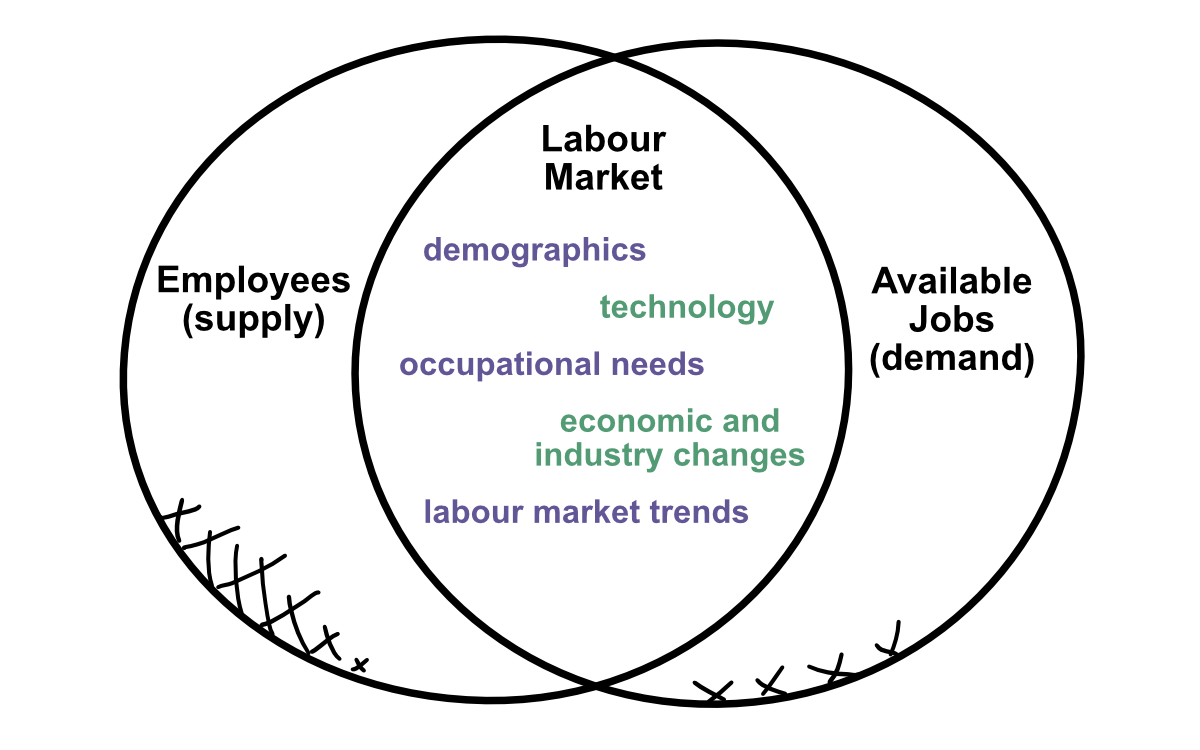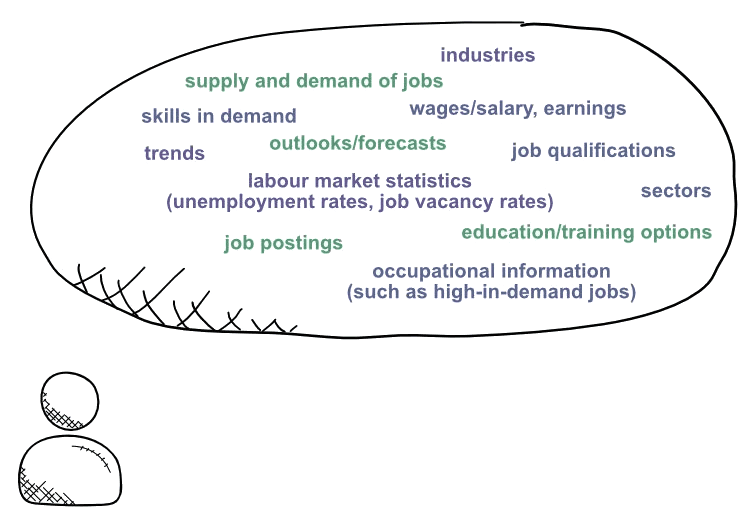✨ Activity: External Influences
✨ Activity: External Influences
1. Labour Market Information (LMI)
Career management includes career planning, which involves researching the labour market—the intersection of employee supply and employer demand. This market is shaped by factors like demographics, technology, occupational needs, economic shifts, industry changes, and labour trends. (ALIS, 2001-2021).

An example of a demographic factor influencing the labour market could resemble a scenario like this,
- as the aging population increases,
- the need for healthcare services increases,
- healthcare products and services increases, and
- the demand for workers in this field increases,
Or
- as the world slowly adopts solar energy,
- the need for fossil fuels decreases,
- demand for oil and gas equipment and services decreases, and
- the demand for workers in this field decreases.
LMI is all around us and is reliant on our global economy which can include many aspects:

LMI Important Points
Sources: LMI can be found on the web, in print, and by talking with people.
Validity: LMI can be quickly outdated. It is important to be discerning about the validity of the information. You can use the CRAAP Test: Currency, Relevance, Authority, Accuracy, and Purpose (CSU, Chico, 2010) to analyze your sources. Be mindful of the potential unconscious or conscious bias in your search terms. Continue to ask yourself if the source is reliable and trustworthy.
Industries: The decline of certain industries often creates new opportunities. For example, the rise of online banking, financial chatbots, and AI contributed to the decline of bank tellers, supervisors, and financial planners. These shifts illustrate the importance of opportunity awareness—when you see an industry fading, ask yourself: what new opportunities could emerge?
Hidden Job Market: This is the job market where employers do not post jobs publicly. Rather, the jobs are filled internally, by referral, or word of mouth. When you develop your community/network (covered in the Discovering Connections unit) you will become aware of more options.
Forecasting: Anticipating skills disruptions, such as a decline in a skillset, an industry, or an occupation, allows you to be proactive in gaining new skills and experiences that keep you competitive in your chosen career path.